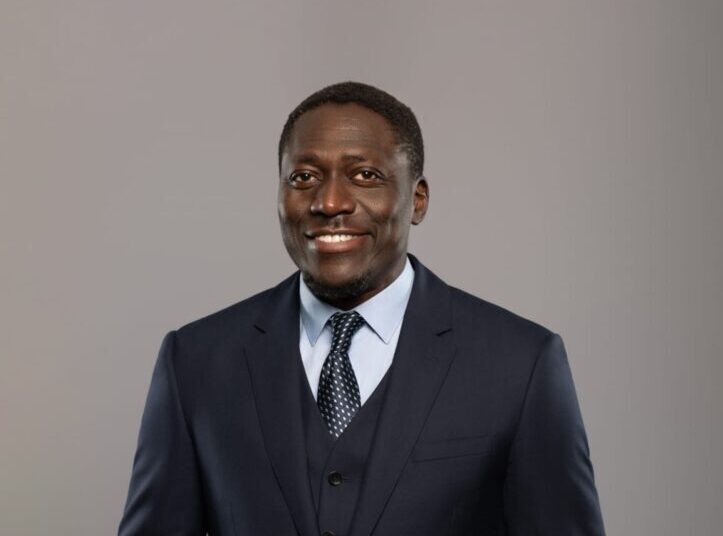As we process the outcomes from the 2023 World Health Assembly (WHA) and celebrate Africa Day, we are witnessing history in the making. The inclusion of the resolution “Strengthening diagnostics capacity” on the WHA 2023 agenda is a critical victory for African people. It signifies the recognition by the World Health Organization (WHO) of the importance of increasing access to quality diagnostics in low-to-middle-income countries (LMICs), particularly in Africa.
Diagnostics play a crucial role in clinical decision-making, driving 70% of all treatment choices. However, despite their significance, diagnostics receive less than 5% of hospital budgets. The Lancet Commission on Diagnostics reports that only about 19% of basic primary care facilities in low-income and lower-middle-income countries have access to diagnostics. This limited availability of timely and high-quality diagnostics remains a weak link in the healthcare system in LMICs .It affects the delivery of quality care, as diagnosis informs treatment decisions at the onset of a patient’s healthcare journey. Prioritizing diagnostics in Africa has the potential to empower individuals, improve health outcomes, and drive economic growth by fostering a more active population
The formal recognition and elevation of diagnostics by the WHA marks a call to action that goes beyond the efforts of any single government or organization. Addressing the systemic barriers that hinder access to quality diagnostics requires a concerted and coordinated effort from all stakeholders. This resolution opens the door for policy changes, new partnerships, and resource mobilization, paving the way for tangible progress in building resilient healthcare systems not only in Africa but globally, ensuring global health security.
The theme for Africa Day this year, coinciding with the Pan-African Organization’s 60th Anniversary, is “Accelerating the implementation of the African Continental Free Trade Area to bring greater prosperity to the continent.” This links firmly to the 2023 WHA theme, “WHO at 75: Saving lives, driving health for all,” because prosperity and health are but two sides of the same coin.
To achieve universal healthcare, diagnostics play a crucial role. The WHA’s acknowledgement of the value of diagnostics reinforces the need to extend diagnostic testing to even the most remote communities. Collaboration is key to creating sustainable and inclusive healthcare systems that prioritize people’s needs and foster economic growth. Public-private partnerships are one vehicle to achieve this.
Governments should recognize the vital role of diagnostics and prioritize their inclusion in national health agendas. By leveraging partnerships with the private sector, governments have an opportunity to invest in strengthening laboratory infrastructure, improving supply chain management, and implementing quality assurance programs that ensure coherent healthcare journeys. Policies promoting diagnostics at the primary healthcare level and facilitating reimbursement mechanisms will help ensure equitable access, especially for those limited by poverty. In the private sector, advocacy for member countries to support the proposed resolution and focus on the 2030 sustainable development agenda is crucial.
While a resolution is not legally binding, it signifies the issues the WHO deems important and worthy of attention. The resolution contains clear recommendations and calls to action for member states, prompting a significant mindset shift among policymakers. National diagnostics strategies encompassing infrastructure, workforce capacity, and regulatory design are essential for robust healthcare systems. As healthcare solution providers, we will seize this opportunity to establish diagnostics as a pillar of health system resilience and security, prioritizing diagnostics in funding negotiations with government stakeholders.
Building robust healthcare systems requires a long-term vision and sustainable funding models. Ensuring the availability and affordability of diagnostics for all requires innovative financing mechanisms such as public-private partnerships, insurance schemes, and international funding commitments. These initiatives act as catalysts for healthier and more prosperous populations. Investing in diagnostics now is an investment in the health and well-being of future generations.
The WHA has given diagnostics their time to shine, and it is crucial that we pool resources, expertise, and technology to accelerate progress. Increasing the percentage of healthcare budgets allocated to diagnostics is more critical than ever. For example, a simple HIV viral load test can determine the effectiveness of medication and inform treatment decisions. Roche’s Global Access Programme, in support of the UNAIDS 95-95-95 goal, expands access to quality diagnostic testing for countries heavily impacted by HIV. Over the last nine years, Roche has leveraged partnerships and now provides approximately 60% of all HIV viral load testing in Africa. Diagnosis is the catalyst for effective disease management and a better quality of life.
Early and accurate diagnosis enables targeted treatments, reducing the need for prolonged hospital stays, unnecessary procedures, and ineffective medications. The formal recognition of diagnostics as a central pillar of healthcare by the World Health Assembly provides a solid foundation for driving change in Africa. Now, it is imperative that we work together to translate these global commitments into actionable steps, ensuring accessible, affordable, and integrated diagnostics across the continent.
By empowering individuals, building resilient healthcare systems, and saving lives, we can seize this opportunity to power progress, transform the narrative, and ensure that every African has access to quality diagnostics and healthcare.
By Dr Allan Pamba
Executive Vice-President Diagnostics, Africa at Roche Diagnostics






Discussion about this post